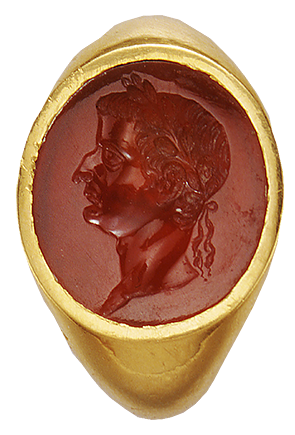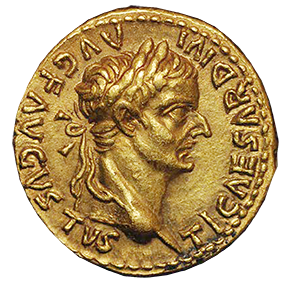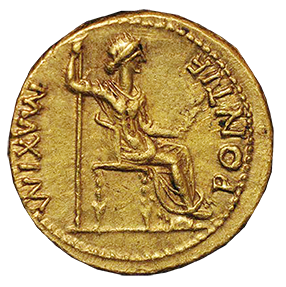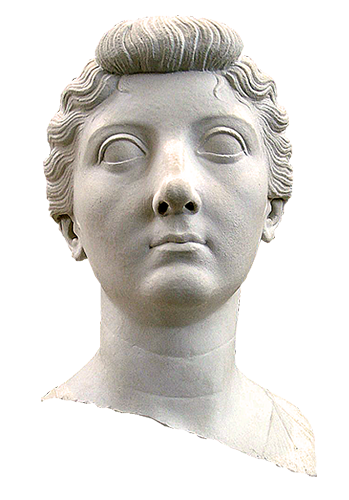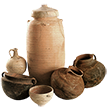
Bible, History, Archaeology
History,
Archaeology
Home > Artifacts > Numismatics >
The tribute to Caesar
Contents:
Presentation - Tiberius denarius - The subtlety of the question - Image Gallery
Presentation
Denarius of the Roman Emperor Tiberius, a silver coin in use at the time of Jesus of Nazareth, minted around 15/20 AD.
Reading:
«So tell us what you think: Is it permissible, or not, to pay tribute to Caesar?
But Jesus, who knew their malice, answered, "Why do you put me to the test, you hypocrites?
Show me the coin with which tribute is paid. And they presented him with a denarius.
He asked them: "Whose effigy and inscription are these?
Caesar,» they replied. Then he said to them, "Render therefore to Caesar what is Caesar's, and to God what is God's."
Gospel of Matthew 22:17. Segond 1978 version
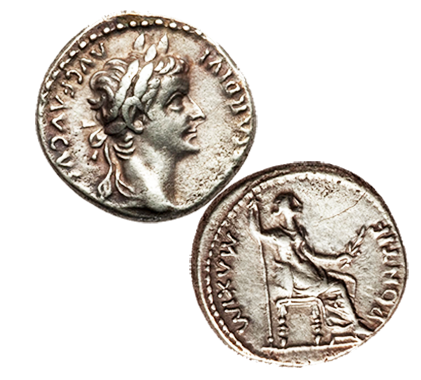
Obverse: TI CAESAR DIVI AVG F AVGVSTVS
Tiberius Caesar Divi Augusti Fili Augustus
(Tiberius Caesar son of the divine Augustus)
Revers : PONTIF MAXIM
Grand pontiff
Female figure (Livia, wife of Tiberius? or Peace) seated on right,
holding an olive branch in his left hand and a long scepter in his right.
Theo Truschel. Private collection.
 The subtlety of the question
The subtlety of the question
The question put to Jesus by the Pharisees, the Doctors of the Law and the Herodians (a political party supporting the Herodian dynasty) (Luke 20:26 specifies «before the people») was in fact a real trap: either Jesus answered in the negative, and would have been denounced to the Romans as inciting the Jews to rise up against Rome; or he answered in the affirmative, and would have been disqualified in the eyes of the people, who resented the yoke of the Romans and their taxes on the country. With this answer, he could not appear as the hoped-for Messiah, since he would have been likened to a collaborator of the Romans. In this way, Jesus sent his adversaries back to back.
Image opposite: Rome, Ara Pacis Museum. Cast of a portrait of Emperor Tiberius from the collection of busts showing members of the Julio-Claudian dynasty. Giovanni Dall'orto.
What's more, such a coin, struck with the portrait of Emperor Tiberius (bust opposite), was considered blasphemous by Orthodox Jews: not only because it included a representation, in violation of the second commandment of the Sinaitic Law (« You won't get a carved image »), but also because it did not respect the principle of monotheism, as the inscription also mentions Tiberius' title of Caesar as son of the Divus Augustus (of the divine Augustus).
Gold ring with carnelian portrait of Tiberius. Image © Bothmer Achat Fonds and Lila Acheson Wallace Gift.
Gold ring with carnelian portrait of Tiberius.
TI CAESAR DIVI AVG F AVGVSTVS Tiberius Caesar Divi Augusti Fili Augustus (Tiberius Caesar son of the divine Augustus, emperor).
TI CAESAR DIVI AVG F AVGVSTVS Tiberius Caesar Divi Augusti Fili Augustus (Tiberius Caesar son of the divine Augustus, emperor).
PONTIF MAXIM Great pontiff, religious leader for life. Female figure: Livia, wife of Tiberius or Peace? © DR
PONTIF MAXIM Great pontiff, religious leader for life. Female figure: Livia, wife of Tiberius or Peace?.

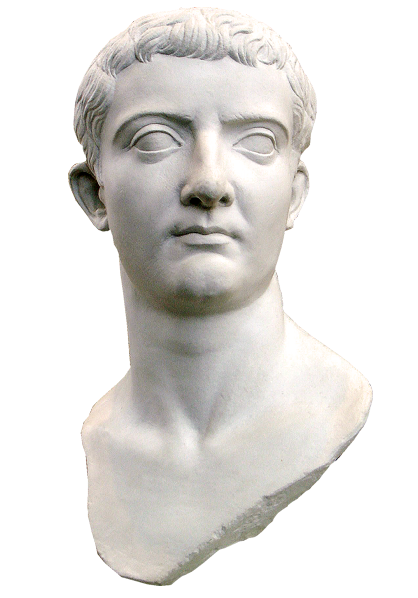 The subtlety of the question
The subtlety of the question